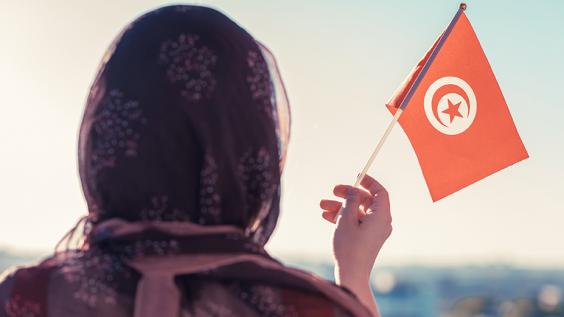The Arab Spring and Women’s Rights in Tunisia

Table of Contents
Author(s)
Mounira Charrad
Former Nonresident FellowAmina Zarrugh
PhD Candidate, Department of Sociology, The University of Texas at AustinWomen have been central to the events that have shaken Tunisian politics since the Arab Spring in 2010-11. They have played roles as protesters and politicians, activists and academics, journalists and photographers, and whether poor or privileged, urban or rural. Tunisia has long occupied an important position in the Arab world since the historic promulgation of its progressive family law in 1956, which placed the country at the forefront of the Arab world in regard to women’s rights (Charrad 2007). In an extensive comparative survey of Arab countries in 2009, Freedom House ranked Tunisia first in the major categories that concern women’s rights, including “autonomy, security, and freedom of person,” and “political and civic voice,” (Kerry & Breslin 2010).
In this article, we address two related questions. In the first section, we consider how Tunisia came to occupy a premier position in regard to women’s rights through the promulgation of its Code of Personal Status (CPS) in 1956, well known throughout the Arab world, and the continuous amendments to the CPS over a half-century since then. In the second section, we discuss some of the current debates on women’s rights in Tunisia following the Arab Spring, including the mobilization of women around the controversial Article 28 in the draft of the new constitution. By “women’s rights,” we mean women’s rights in the law as it concerns personal status and family law. We focus on this aspect of the law because family law is, as lawyer and human rights activist Asma Khadar (1996: 2) stated unambiguously, “the gate of freedom and human rights for women” in the Arab and broader Muslim worlds. Family law has significant implications for women’s lives, including their ability to make life choices freely and to pursue educational and professional opportunities.
Read the full article at E-International Relations.


